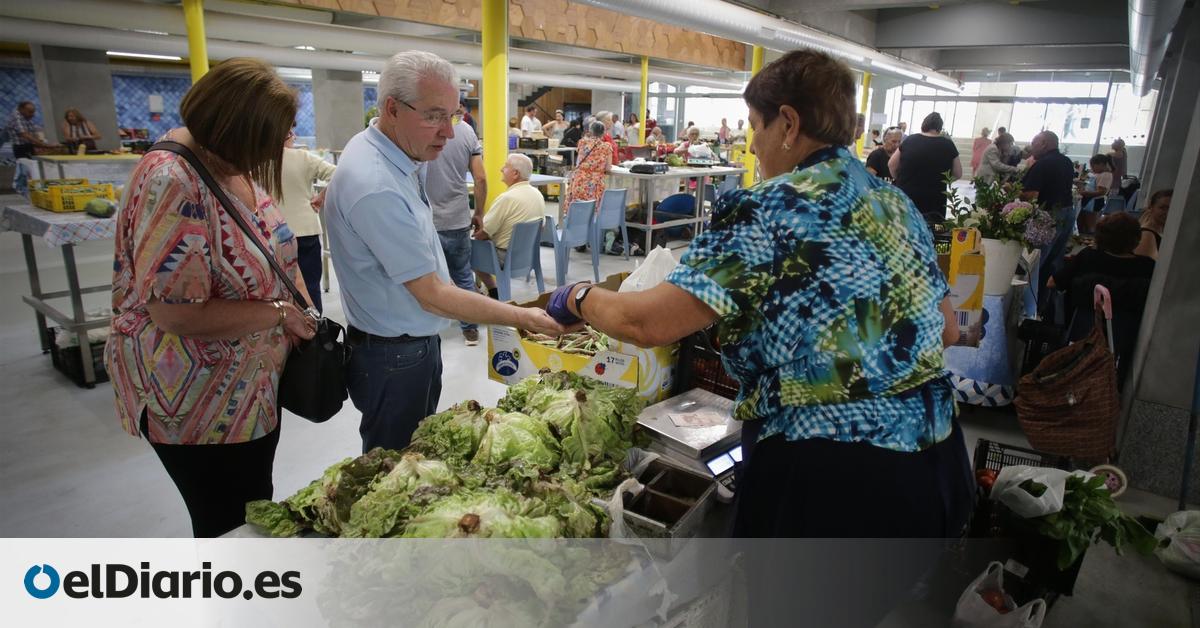
The INE has confirmed that the general CPI rose 4 tenths to 3.2% in March, compared to the same month in 2023, due to the reestablishment of VAT on electricity. The best news from this data for families’ pockets is that food inflation moderated to 4.3% in the same year-on-year calculation, a minimum since 2021. Price increases in supermarkets and in stores have been reduced to a quarter from the maximum of 16.6% reached in February of last year.
For its part, the underlying CPI (Consumer Price Index), which excludes unprocessed food and energy, also continued to reduce, down to 2 tenths in March, to 3.3%, which represents the lowest rate in the last two years. .
“The inflation data continue to reflect the capacity of the Spanish economy to make the highest economic growth among the main countries in the eurozone compatible with a moderation in prices and the maintenance of support for the most vulnerable,” defend the Ministry of Economy. Commerce and Business.
End of VAT reduction on electricity
The jump in the general CPI to 3.2% of inflation from 2.8% in February was expected due to the effect of the withdrawal of one of the most important measures of the Government of collation against the price crisis that began in the end of the pandemic and that was exacerbated by the Russian invasion of Ukraine. In the current context of normalization of energy prices, the reestablishment of VAT on electricity prior to June 2021 causes an inflationary effect. Likewise, the INE highlights an acceleration in fuel prices, in the middle of Holy Week.
The general CPI already rose to 3.4% in January (again compared to the same month in 2023). At that time, due to the beginning of the partial withdrawal of shock measures to meet the 3% deficit objective, after the return of fiscal rules to the EU. Then, the VAT on electricity went from 5% to 10%, where it remained in February.
Relief in supermarkets
The moderation of food inflation is especially relevant for households with lower income because purchases in supermarkets or stores represent a higher percentage of total spending the less one earns. This is where the main focus of concern is. For this reason, the VAT reduction on basic foods remains in force, for now until June, along with discounts on public transport.
The decrease to 4.3% in March “was due, for the most part, to the drop in the prices of legumes and vegetables, which increased in the same month of 2023. The rise in meat prices, less than in March 2023”, they emphasize from the INE. What does not give truce is the skyrocketing inflation of olive oil, which went to 70%.
This process of moderation of the price crisis (year-on-year inflation has been below 4% since April in our country), together with improvements in salaries and pensions, is allowing families to gradually recover the ability to consumption lost in recent years, which is transferred to economic growth.
The big problems for households in Spain continue to be the inaccessibility of housing, especially in large capitals, and inequality. The 2023 Living Conditions Survey confirmed that the social response to the chained losses of the pandemic and the Russian invasion of Ukraine has brought inequality to a minimum. However, inflation and the housing market continue to damage purchasing power and cause dissatisfaction among many working families.
To a greater or lesser extent, depending on the sector, companies have transferred the increase in costs to the prices that families pay to defend their profit margins and earn more.
Currently, the main risk regarding inflation is the impact of the wars in Ukraine and Gaza on energy prices and global trade bottlenecks.
In this last “mile” – according to the language of monetary policy – of the inflation crisis, price increases have been concentrated in a few sectors in our country. In this situation, the strategy of “taming inflation” – according to the same economic jargon – with increases in the interest rates of the European Central Bank (ECB) is called into question. For now, the institution refuses to reverse the flamethrower policy, which consists of drowning families, companies and States to provoke a crisis and thus moderate inflation.
Source: www.eldiario.es

